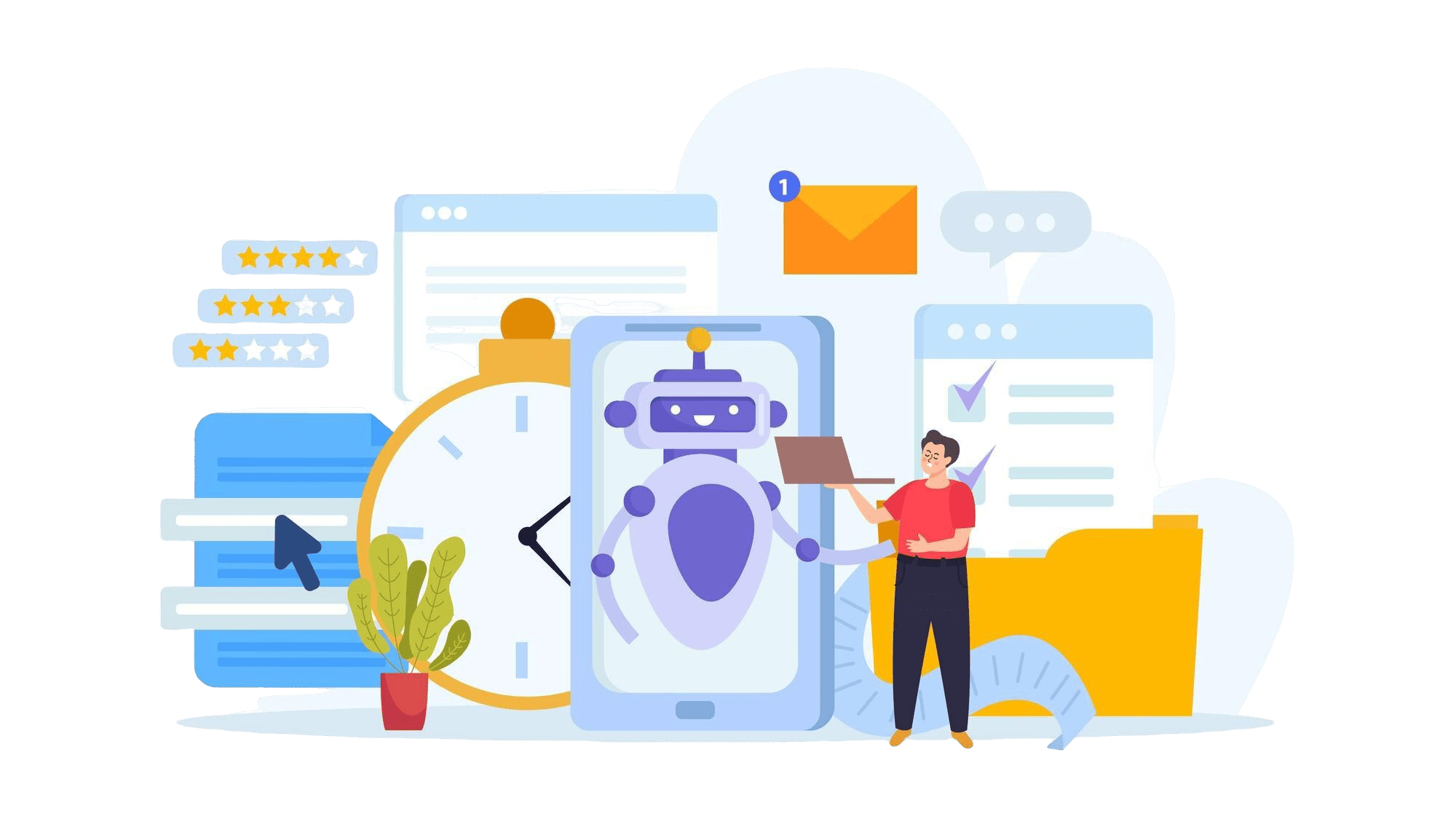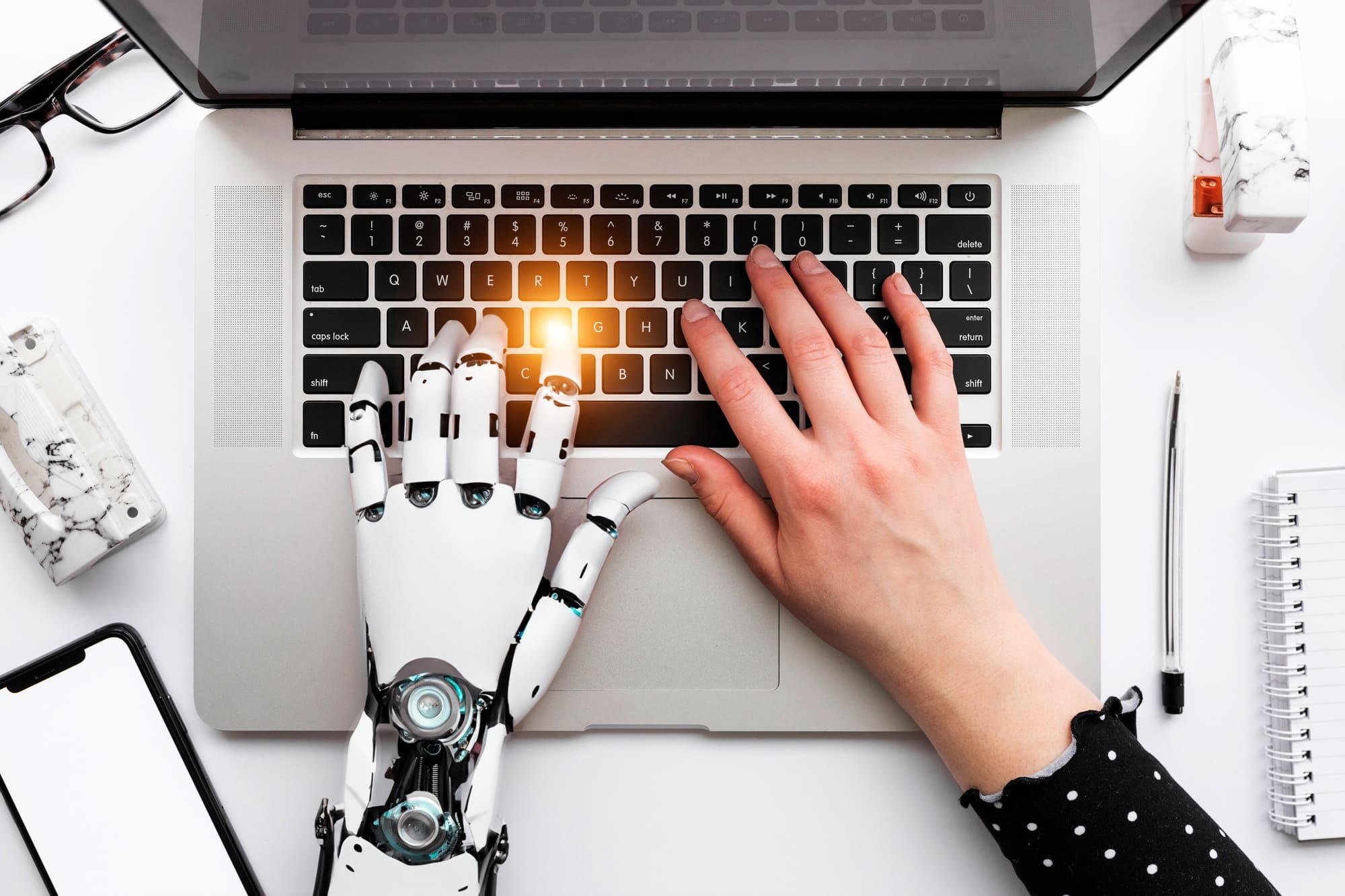As project managers face increasing complexity and data overload, generative AI offers groundbreaking solutions to streamline workflows, improve decision-making, and enhance project success rates.
Studies show that 58% of project managers believe AI positively impacting project timelines and resource utilization, while 65% respondents report 1their organizations are regularly using generative AI, nearly double the percentage from their previous survey.
In this blog, we’ll explore the practical applications of generative AI in project management, from task automation to predictive analytics, and delve into the tools, challenges, and emerging technologies shaping the future. Additionally, we’ll discuss strategies for overcoming implementation hurdles and ensuring secure, compliant AI integration.
Let’s dive in!
What is Generative AI?
Generative AI can simplify complex tasks like content creation, data analysis, and predictive modeling, offering project managers a practical way to enhance efficiency.
Project management can be seen as a tool that learns from past inputs to generate meaningful content, such as reports or project updates, with minimal effort on the user’s part. Think of it as delegating routine tasks to an intelligent system that can continuously improve.
For project managers, this means automating tasks that would otherwise take up valuable time, such as drafting meeting summaries, generating insights from project data, or even predicting resource needs based on previous projects.
How GenAI Works
Generative AI models like GPT-4 or DALL·E rely on vast datasets and sophisticated machine learning techniques to generate new content. These models learn from enormous amounts of data—from written text to images—and can produce human-like text or create images based on a simple prompt. For example, ChatGPT can help draft project reports, while DALL·E might be used to create project visuals or diagrams for presentations.
In project management, AI tools can dramatically enhance resource allocation and collaboration. AI’s predictive capabilities allow it to forecast project timelines and recommend optimal resource use, while smart task management features ensure tasks are assigned to the right team members based on their skills and availability.
Benefits of Generative AI for Project Managers
Enhanced Decision-Making
Generative AI helps project managers make smarter decisions by analyzing live data and past trends to uncover actionable insights. For example, techniques like Critical Path Project Management can be enhanced with AI’s ability to identify dependencies and optimize timelines. Rather than relying solely on intuition or outdated data, AI analyzes vast datasets, including historical trends and live project data, to predict future outcomes.
This allows project managers to make informed, timely decisions and proactively address potential risks. For instance, AI can predict project delays by analyzing patterns in previous projects, real-time updates, and current resource allocation, helping managers implement corrective measures before issues escalate.
An example of this in practice is how Mirorim integrates generative AI to continuously monitor resource allocation and identify potential risks. With Mirorim, managers gain early insights into potential project delays or bottlenecks, allowing them to resolve issues before deadlines are compromised. According to recent reports, 21% of project managers who use AI tools like Mirorim report improved decision-making efficiency, particularly in complex and dynamic project environments.
Automated Administrative Tasks

Generative AI also reduces administrative burdens by automating repetitive tasks like scheduling meetings, generating status reports, and tracking milestones. Tools like Mirorim automate the creation of project reports, keeping stakeholders informed with minimal manual effort. This frees up time and ensures that administrative tasks are completed more accurately and efficiently.
Scheduling, for example, can be automated with Mirorim, which assigns tasks and schedules meetings based on team availability and project timelines. AI’s real-time monitoring of project progress also ensures that managers receive updates about task completions and potential issues before they escalate.
Improved Communication
Generative AI is changing the game for project managers, especially when it comes to team communication and collaboration. These AI-powered tools analyze team interactions and offer real-time suggestions to improve clarity and keep conversations on track. The result? Less miscommunication and smoother workflows that help everyone stay aligned.
For example, AI tools like those in Microsoft Teams can automatically transcribe and summarize meetings, pulling out key points and action items so no one misses a beat. They’re a lifesaver for keeping global teams connected, even across time zones.
What’s more, AI can flag potential bottlenecks—like delayed responses—and give project managers the chance to step in before things derail. By handling routine tasks like scheduling meetings or sending reminders, these tools free up your team to focus on the big-picture work that really matters.
Effective communication is essential for seamless teamwork, and AI-driven communication tools can enhance clarity and responsiveness. To complement this, fostering strong team dynamics is also key—check out our guide on effective team dynamics to learn how collaboration and trust can significantly improve project success.
Risk Management
Generative AI revolutionizes risk management by proactively identifying risks and offering mitigation strategies. AI analyzes past project data and real-time information to detect patterns that may lead to resource shortages or delays. If you’re managing sensitive or high-stakes projects, learn how risk management techniques are saving lives in our Healthcare Project Management guide.
Studies indicate that businesses leveraging AI for risk management report up to 70% greater accuracy in predicting project delays and potential risks. Mirorim’s AI-driven system identifies risks and suggests optimal solutions, such as reallocating resources or adjusting timelines to maintain project momentum.
Practical Applications of Generative AI in Project Management
| Application | Description | Examples |
| Project Planning | Uses data to predict timelines and resources, enabling proactive adjustments. | Tools like Proggio optimize timelines and plans. |
| Resource Allocation | Matches tasks with the right resources to minimize misallocation. | Forecast reduces resource misallocation by 30%. |
| Task Management | Automates task assignments and reallocates tasks dynamically. | Mirorim assigns tasks based on team workload. |
| Data Analysis and Reporting | Automates reporting and provides real-time dashboards for monitoring progress. | Mirorim identifies delays via real-time insights. |
| Automating Client Correspondence | Streamlines routine emails, ensuring timely communication. | AI tools draft and automate client updates. |
| Generating Project Reports | Turns raw data into accurate, actionable reports automatically. | Mirorim generates detailed project reports. |
| Facilitating Ideation | Aids brainstorming with creative solutions to challenges. | AI tools suggest innovative project ideas. |
| Creating Visual Assets | Generates visuals from text descriptions, simplifying design tasks. | DALL·E creates project diagrams and slides. |
Project Planning
Generative AI revolutionizes project planning by leveraging historical and real-time data to create more accurate, data-driven project plans. One of the most valuable aspects of AI in this context is its ability to predict timelines and resource needs with unprecedented precision.
Rather than relying on manual calculations or gut feelings, AI tools analyze patterns from previous projects and combine them with current project data to forecast potential delays, resource bottlenecks, or budget overruns.
This proactive approach allows project managers to make informed adjustments before issues arise, significantly increasing the likelihood of on-time delivery.
For example, platforms like Proggio and Forecast use AI to recommend optimal project timelines based on task dependencies, team availability, and external factors such as market conditions. By automating these analyses, AI ensures project managers can focus on strategic decision-making rather than getting bogged down in manual planning efforts.
AI also excels in resource allocation, helping project managers distribute resources more efficiently by identifying which tasks require the most attention and which team members are best suited for specific roles. Predictive analytics ensures that no resource is under or over-utilized, saving time, reducing costs, and preventing resource conflicts.
Resource Allocation
Generative AI optimizes resource allocation by using data-driven insights to match resources with project demands. For instance, AI algorithms analyze team members’ skills, availability, and project deadlines to allocate resources effectively. A case study from Forecast showed that AI tools could reduce resource misallocation by 30%, ensuring that high-priority tasks get the right resources at the right time, thus improving overall project efficiency.
Task Management
AI-powered task management automates the assignment of tasks based on skills, availability, and deadlines. Tools like Mirorim help streamline this process by constantly tracking team members’ workload and dynamically reassigning tasks when necessary. AI algorithms ensure that urgent or complex tasks are assigned to the most suitable team members, enhancing both productivity and morale.
Data Analysis and Reporting
AI dramatically increases the efficiency of data analysis by automating complex reporting processes. Real-time insights from AI enable project managers to monitor performance metrics continuously. To keep your projects within budget and timelines, see our practical guide on Burn Rate Chart: Guide for +30% Project Completion.
Automating Client Correspondence
Generative AI can also streamline client communication. AI email assistants can draft and automate routine correspondence, like sending progress updates or responding to client queries, reducing administrative workload and ensuring timely communication. By leveraging AI, project managers can maintain professional relationships while focusing on higher-priority tasks.
Generating Project Reports and Documentation

AI tools like Mirorim automate the generation of project reports by turning raw data into actionable insights. These tools can produce detailed progress reports and documentation, saving project managers hours of manual work and ensuring accuracy in reporting.
Facilitating Ideation and Brainstorming Sessions
AI tools assist in generating ideas by analyzing project inputs and offering creative solutions to challenges. By facilitating brainstorming sessions and providing suggestions, AI helps teams think outside the box and find innovative ways to approach complex problems.
Creating Visual Assets and Designs
AI tools like DALL·E can generate visual assets based on text descriptions, enabling project managers to create presentation slides, diagrams, or visual project plans without needing design expertise. This accelerates the process of preparing project proposals and communicating ideas visually.
Challenges and Considerations of AI Project Management
Implementation Challenges
Adopting AI in project management can bring numerous benefits, but it also presents several significant challenges. One of the primary obstacles is the high upfront cost associated with integrating AI technologies. To avoid overextending project goals during AI implementation, check out our guide on Defining Boundaries in a Project to Prevent Scope Creep.
Additionally, many teams experience resistance to change as employees may fear that AI will replace their roles or feel overwhelmed by new technologies. The long learning curves compound this, as project teams must gain a deep understanding of AI’s capabilities and how to effectively integrate them into their workflows.
To mitigate these challenges, a step-by-step implementation approach is crucial. Begin with a pilot phase to introduce AI in one area, such as task automation or data reporting. This allows the team to gradually adapt and provide feedback.
Offering continuous AI training programs can also help alleviate resistance, ensuring all stakeholders understand the benefits and learn how to work alongside AI, rather than fearing its implementation. Studies show that organizations using a phased rollout are more likely to see smoother transitions and greater acceptance across teams.
Data Privacy and Security
Another significant challenge in AI adoption is data privacy and security. AI systems often handle large amounts of sensitive project data, including personal information and proprietary business details. Without robust security protocols, the risk of data breaches and unauthorized access increases significantly.
Furthermore, AI algorithms are not immune to biases, which can lead to ethical concerns when handling sensitive information. Ensuring compliance with GDPR and other data protection regulations is essential.
To address these concerns, organizations should invest in tools with strong encryption protocols and privacy compliance features. AI solutions should be paired with continuous monitoring systems to detect and address vulnerabilities in real-time.
Implementing data protection impact assessments (DPIAs) can also help ensure that AI systems are aligned with industry best practices, protecting sensitive data while maximizing AI’s potential.
AI and the Future of Project Management
In the next 5-10 years, artificial intelligence (AI) is expected to play a transformative role in project management. According to industry experts, AI will shift from being a tool for task automation to a strategic asset that can drive predictive insights and decision-making.
By analyzing vast amounts of data from past projects, AI will enable project managers to predict project outcomes, allocate resources more effectively, and minimize risks. It’s predicted that by 2025, AI will contribute between $3.5 to $5.8 trillion annually across industries, highlighting its economic impact.
AI will also drive the evolution of smart project management systems, where real-time data processing will allow teams to dynamically adjust schedules, budgets, and resource allocations without manual intervention. Moreover, AI is set to transform team collaboration by streamlining communication, summarizing meetings, and identifying potential bottlenecks through smart analysis of team dynamics.
Real-Life Examples of Project Management with AI
1. Network Rail – Data Strategy and AI Integration
Network Rail’s Wales & Western Region2 adopted a data-first strategy to pave the way for AI integration into project management. The organization saw significant gains by streamlining its data systems and implementing AI-driven analytics, such as recovering 29,000 annual hours for project teams and saving approximately £3 million in operational costs.
The phased rollout of AI ensured that project teams were not overwhelmed and had ample training to adapt to the new tools. Key takeaways include building a robust data infrastructure and gaining team buy-in early. These steps allowed Network Rail to transition smoothly into AI-enhanced project management while fostering greater team collaboration.
2. VieCuri Medical Center – AI for Resource Allocation
VieCuri Medical Center3, with a workforce of over 3,000 staff across five locations, faced challenges in efficiently allocating resources. They optimized resource management by partnering with EpicFlow, an AI-driven project management software.
AI evaluated the availability and skills of team members in real time, ensuring that resources were allocated precisely where needed. This improved overall efficiency, leading to better project timelines and workload decision-making.
The key lesson here is that AI can dramatically enhance resource allocation by reducing mismanagement and burnout among staff.
3. Accenture – Predictive Analytics for Project Success
Accenture used AI-driven predictive analytics4 to forecast project outcomes with 97% accuracy. This AI model was particularly beneficial in identifying potential sales opportunities and guiding strategic decision-making.
Accenture’s approach to integrating AI highlights the importance of leveraging historical project data to predict future success, allowing project managers to focus on high-impact projects. This case underscores how predictive analytics can significantly improve project forecasting and risk management.
Key Takeaways
- Phased AI Rollout: Network Rail and VieCuri adopted a phased approach to AI implementation, minimizing disruptions and allowing teams to adapt gradually. This strategy is crucial for reducing resistance and ensuring successful integration.
- Team Buy-In and Training: Success stories across industries emphasize the need for comprehensive team training and early buy-in. AI is most effective when teams understand its capabilities and feel confident using it in their daily workflows.
- Data-Driven Decision Making: Companies like Accenture show that predictive analytics can transform project planning and execution by providing insights that guide decisions, minimize risks, and optimize resources.
Conclusion
Generative AI revolutionizes project management by providing powerful tools for enhanced decision-making, resource allocation, and task automation. AI-driven platforms analyze large datasets, allowing project managers to predict outcomes more accurately and adjust their strategies in real-time.
This results in better resource management, increased efficiency, and reduced manual errors. Moreover, generative AI automates routine administrative tasks like report generation and client correspondence, freeing project managers to focus on higher-level responsibilities.
By adopting AI, project managers can optimize workflows, ensure more efficient collaboration, and make smarter, data-driven decisions that enhance overall project success. As companies like Accenture and VieCuri Medical Center have shown, integrating AI into project management processes leads to significant time savings and improved outcomes.Ready to transform your project management with AI? Create a free account on Mirorim and experience the benefits of generative AI for yourself!
References
- Singla, A., Sukharevsky, A., Yee, L., & Chui, M. (2024, May 30). The state of AI in early 2024: Gen AI adoption spikes and starts to generate value. McKinsey & Company. https://www.mckinsey.com/capabilities/quantumblack/our-insights/the-state-of-ai ↩︎
- Case study – Network Rail: Laying the groundwork for AI adoption with a data-first strategy | APM. (n.d.). https://www.apm.org.uk/resources/find-a-resource/case-studies/case-study-network-rail-laying-the-groundwork-for-ai-adoption-with-a-data-first-strategy/ ↩︎
- Epicflow. (2024, October 28). VieCuri Case – Epicflow. https://www.epicflow.com/cases/viecuri-case/ ↩︎
- Unilever and Accenture Collaborate on Next Generation AI. (n.d.). https://newsroom.accenture.com/news/2023/unilever-and-accenture-collaborate-on-next-generation-ai ↩︎


4 Responses
Thank you for sharing this blog. I recently stumbled across a Gen AI Free Toolkit for Project Managers and there are free e-books with loads of tips in. I thought it would also be beneficial for your readers as well. It was so refreshing to read through such great content you’ve shared here.
Hi Robert, thank you so much for your kind comment! I’m really glad you enjoyed the blog. That Toolkit sounds amazing—we’d love to check it out and potentially share it with our readers. If you have a link or more details, feel free to send it here.
Cheers!
Thank you for sharing an insightful guide! Generative AI is a game-changer for project managers, enhancing planning, risk analysis, and collaboration. A must-read for staying ahead in 2025’s dynamic project landscape!
I recently stumbled across a Generative AI Free Toolkit for Project Managers and there are free e-books with loads of tips in. I thought it would also be beneficial for your readers as well. It was so refreshing to read through such great content you’ve shared here.
Download the full guide for FREE and learn how these tools can transform your approach: https://www.gsdcouncil.org/chatgpt-guide-for-project-managers?s=blog%20commenting
I’m curious, do you think AI will eventually replace certain aspects of the project manager’s role, or will it always be a tool to enhance their work? Where do you draw the line?